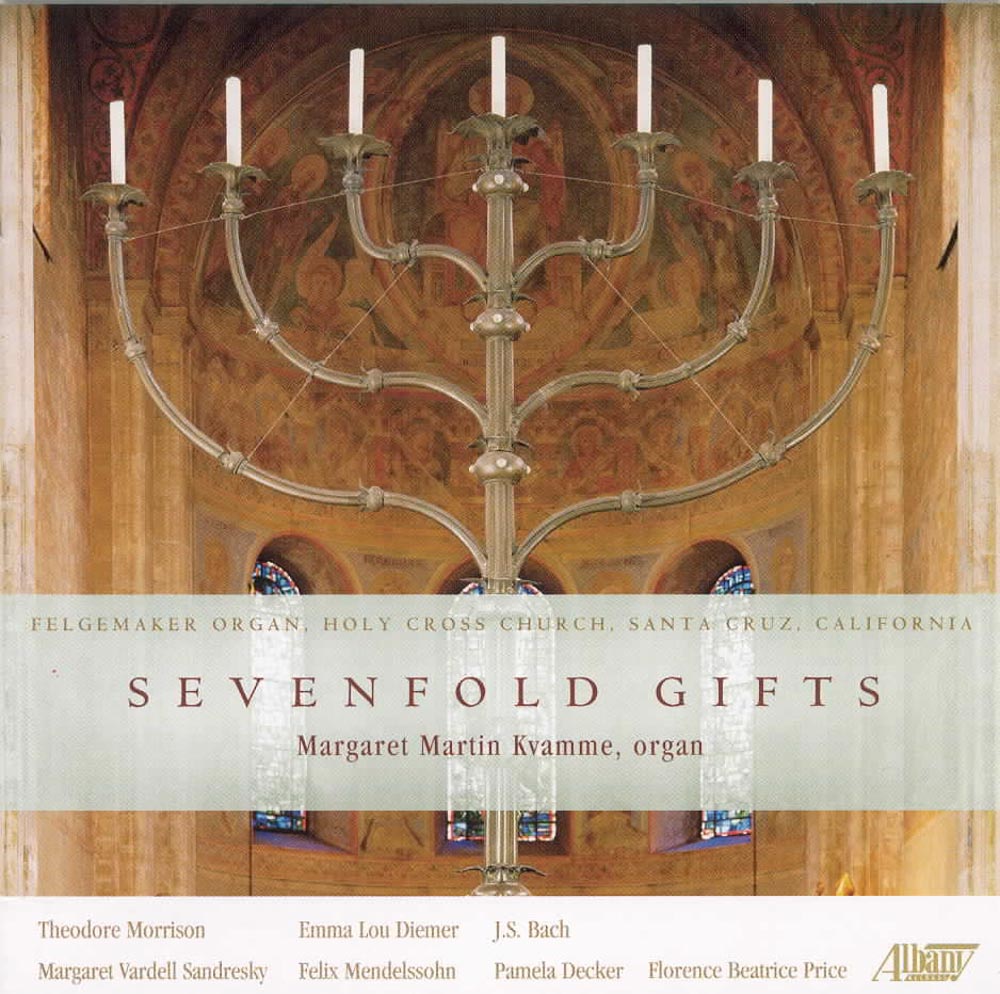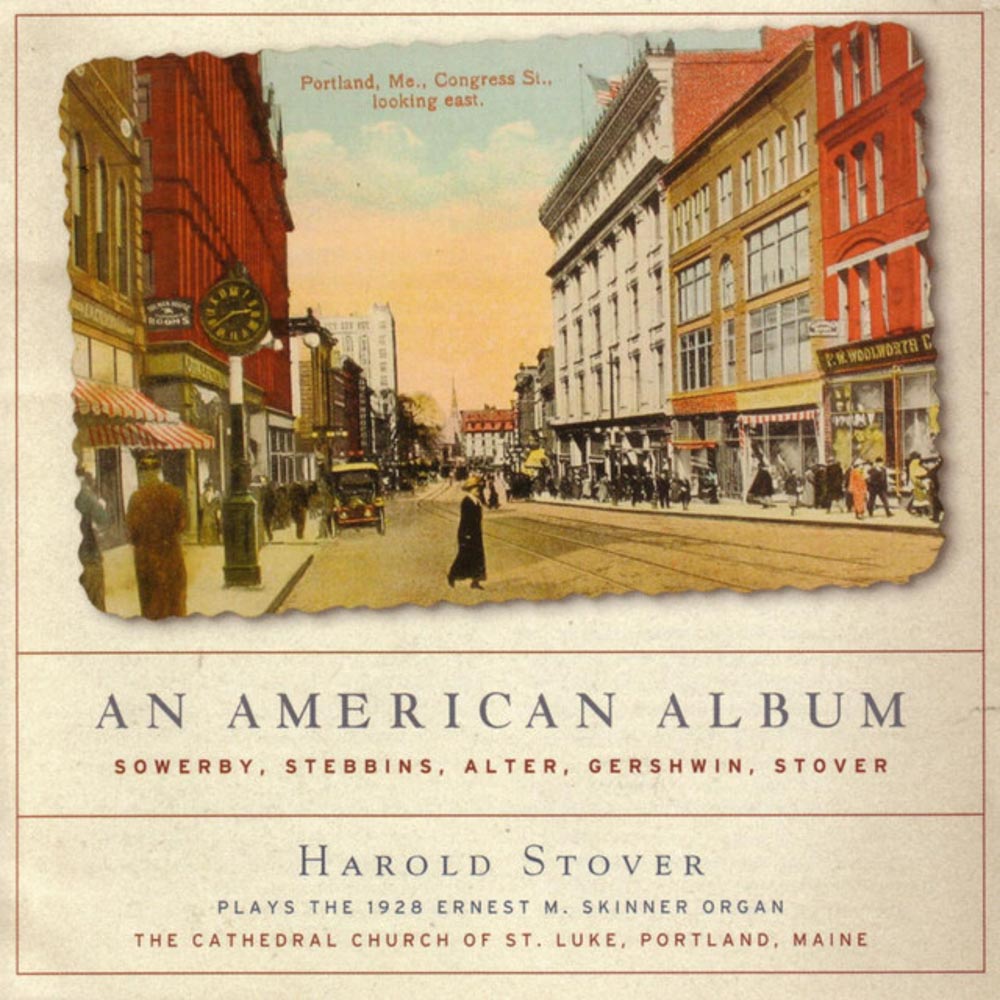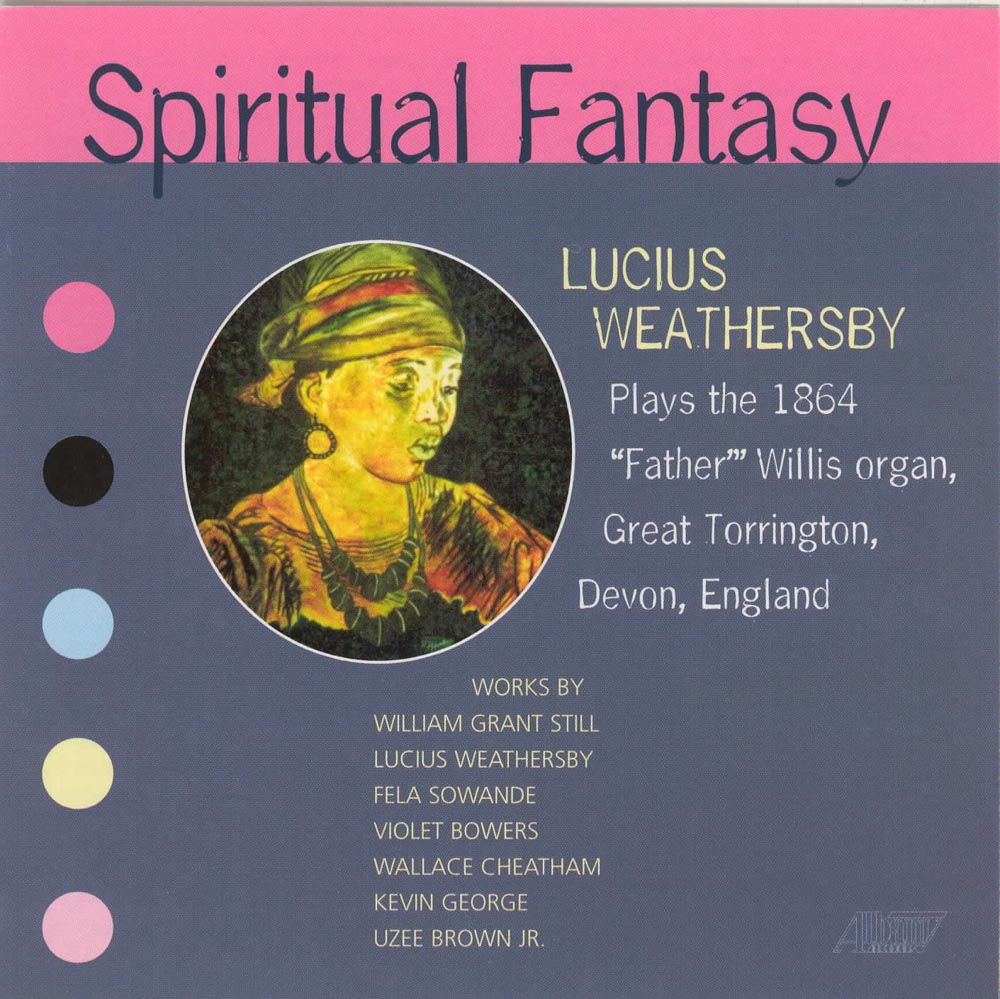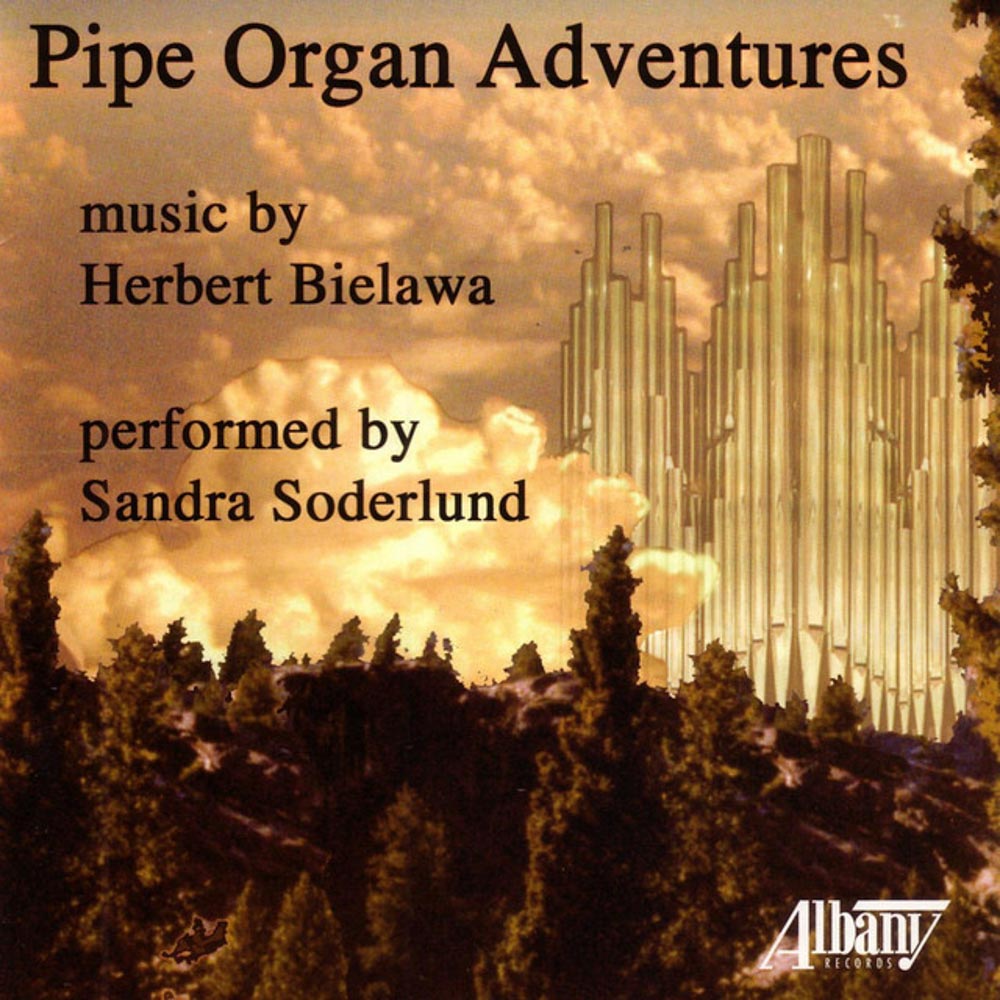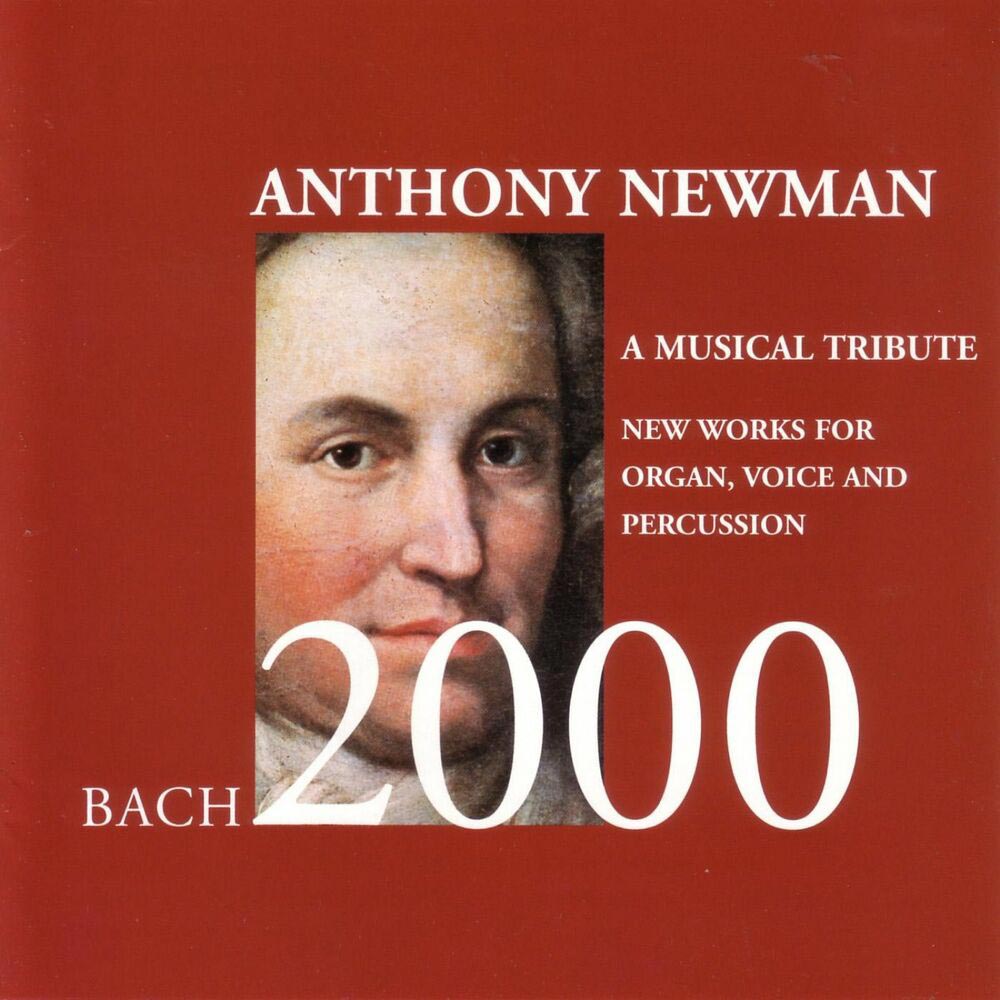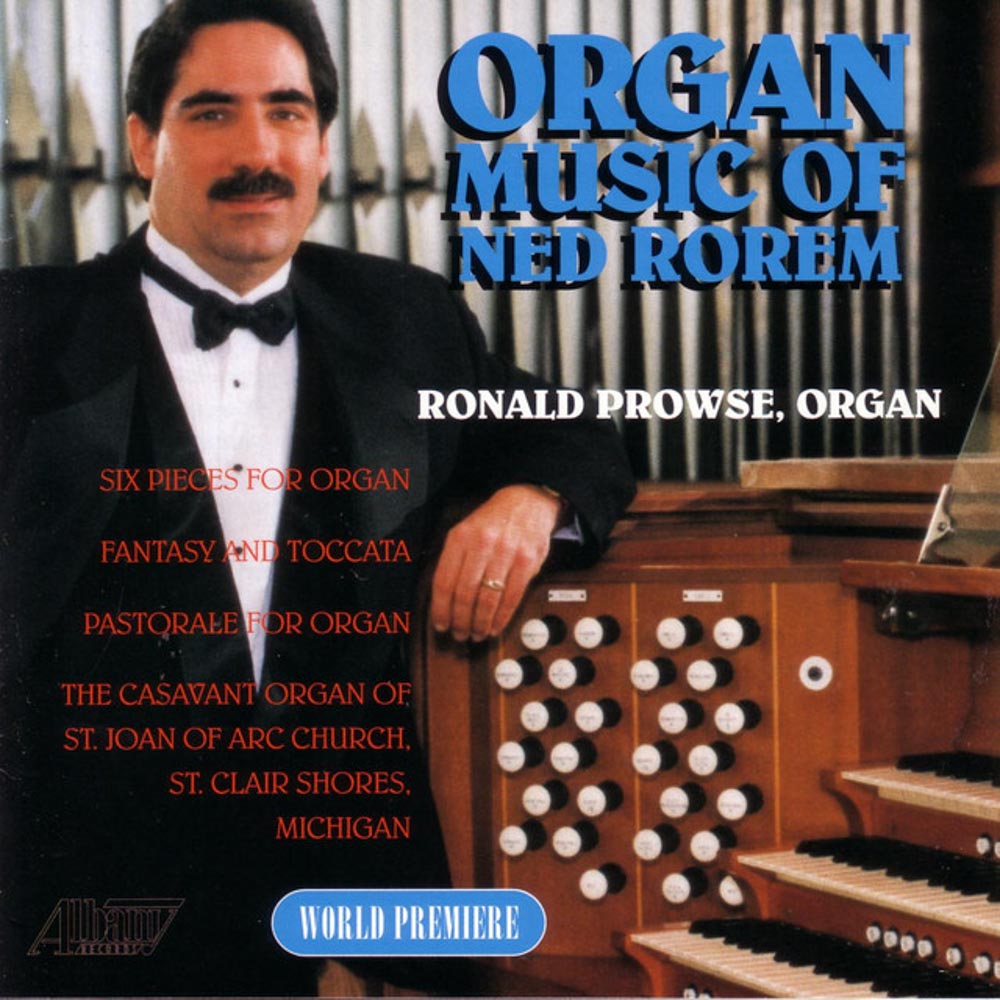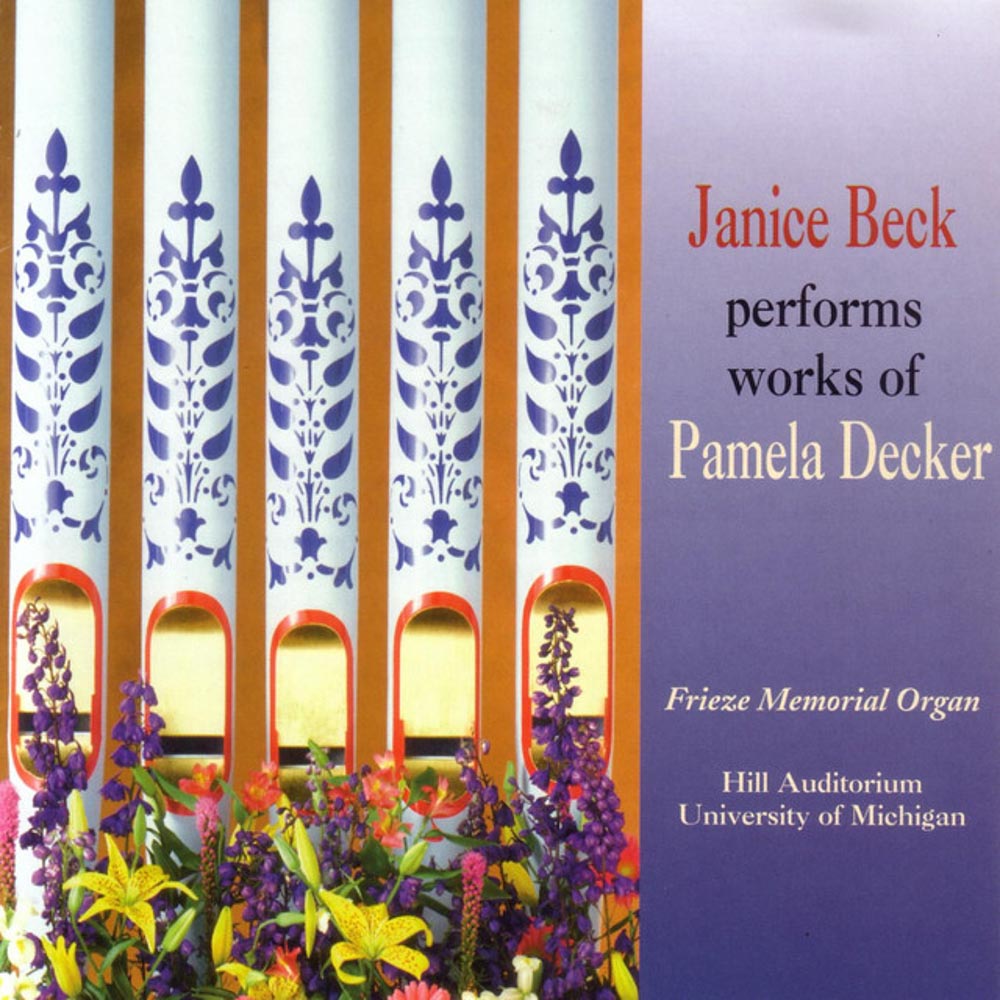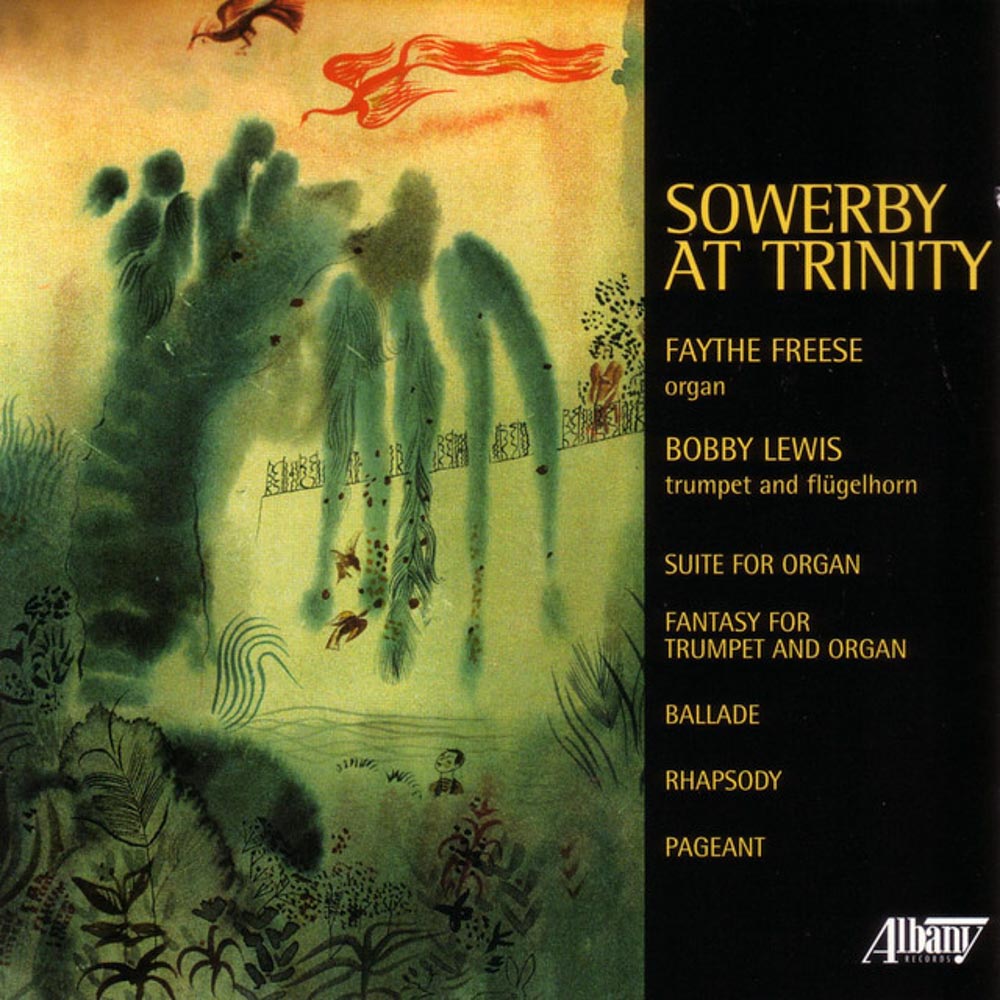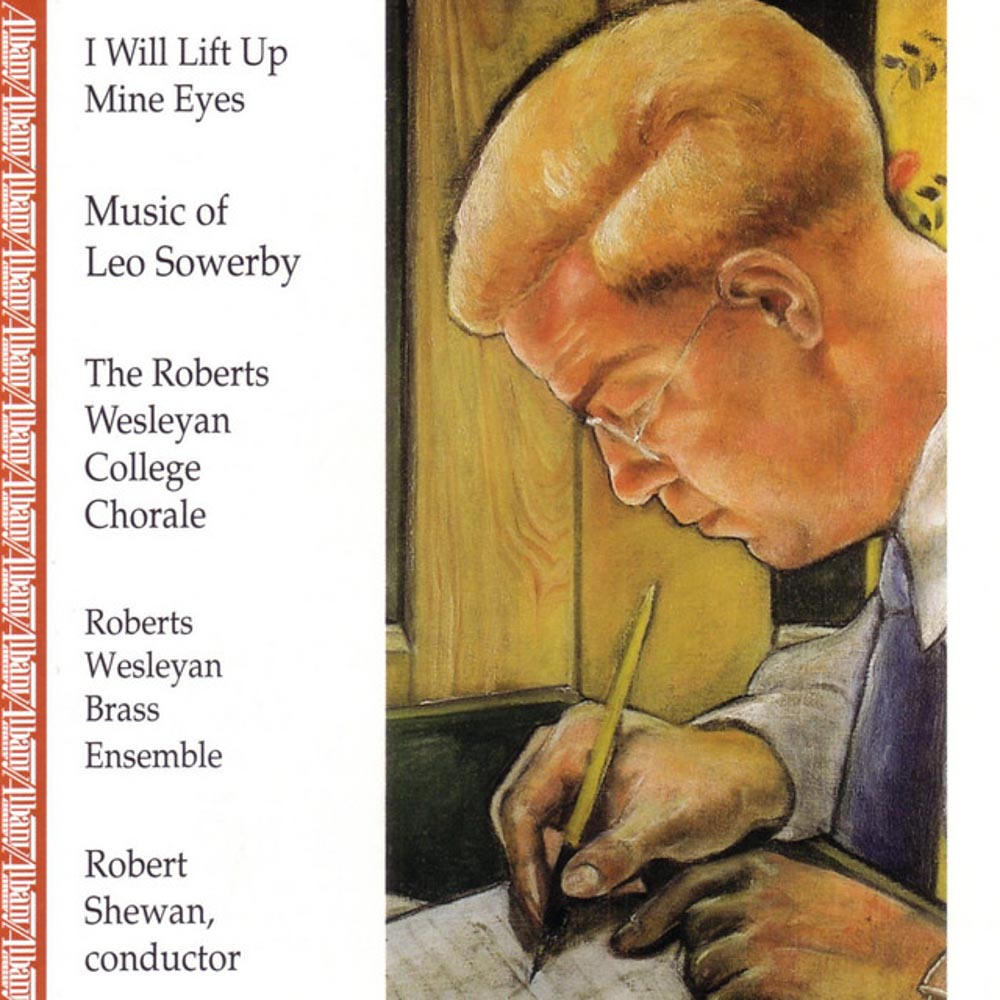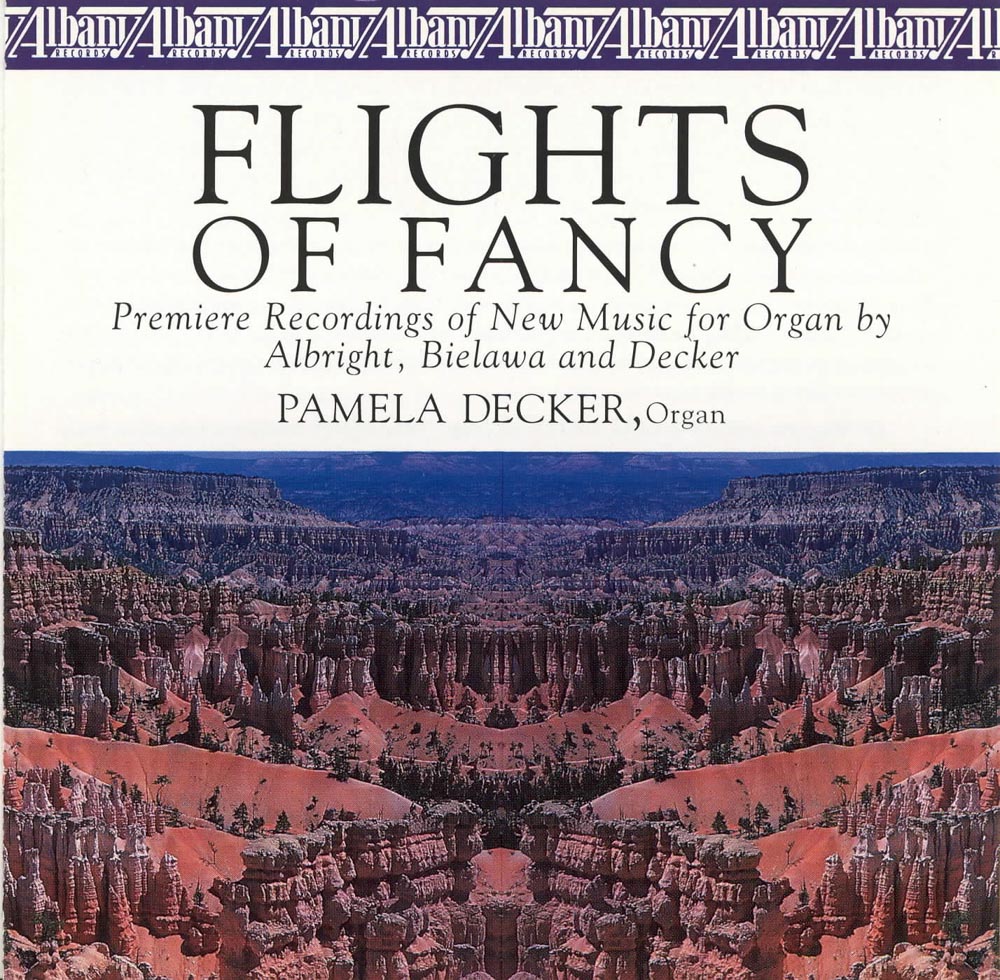Catalog #: TROY0940
Release Date: July 1, 2007OrganComposers since the 16th century have reveled in writing sets of variations, exploring the wealth of possibilities in a pre-composed theme, often a hymn-tune. The pipe organ is the perfect candidate for presenting these variations not only because of its connection to the church and hymn singing but because of the myriad variety of colors and textures it offers. Canadian-born Maragaret Kvamme's unique program shows off the organ as the ideal medium for this kind of music. Ms. Kvamme, first-prize winner of the 1993 Naples International Organ Festival Competition, has performed extensively throughout the Bay Area, in Michigan, New York, Arizona, and Ontario, Canada. She has appeared on the "Distinguished Women at the Console" Series in Akron, Ohio. Ms. Kvamme performed this recording on the Felgemaker Organ Opus 506 built in 1889, Holy Cross Church, Santa Cruz, California.
Catalog #: TROY0765
Release Date: June 1, 2005OrganThere is a wonderful photo on the front cover of this new disc which perfectly sets the nostalgic mood: Congress Street, looking east, in Portland, Maine, c. 1920's (looking surprisingly like Pearl Street of the same time in our hometown of Albany). As organist Harold Stover writes: "There was a time in America when technological progress was equated with mechanical complexity, when radio and talking movies still lay in the future, and when the recording industry was barely out of its infancy. In those days, pipe organs joined the great ocean liners and the mighty steam locomotives on the cutting edge of modernity and were a central component in the listening experience of the American public. They were found almost everywhere that music was a part of life: in churches, to be sure, but also in concert halls, theatres, school auditoriums, hotel ballrooms, mortuaries, sporting arenas, carousels, and the mansions and even the yachts of the well-to-do. They provided a world of sound more varied than the commonplace parlor piano, more sensual at its softest, more awesome at its loudest. In an era when aspirations of personal advancement included cultural as well as material goals, the organ and the music played on it were benchmarks of social arrival in civic, ecclesiastical and domestic life." Harold Stover is a native of Latrobe, Pennsylvania, and a Juilliard graduate. He has appeared at Riverside Church in New York, Westminster Abbey in London and many other distinguished locales. He presently serves as Organist and Director of Music at Woodfords Congregational Church in Portland, Maine. He presents here a wonderful selection of old and new works (with his own compositions based on traditional forms) giving the organ enthusiast a chance to hear some familiar names and the means of meeting new ones. And thanks to the newest technology of CD, we get to relive the wonderful sounds of one of the organs of that bygone time.
Catalog #: TROY0440
Release Date: May 1, 2001OrganLucius R. Weathersby was born in Houston and raised in Louisiana. He is an assistant professor of music and chairperson of the music department at Dillard University in New Orleans where he teaches piano and lectures in music theory. He is the founder and co-director of the Dillard University String Ensemble. For more than five years , he was employed as full-time director of music in two churches where he founded and managed the First Congressional Concert Series in Waterloo, Iowa and the Second Sunday Concert Series at the Church of the Beatitudes in Phoenix, Arizona. He has given recitals in the United States and worldwide. The organ used for this recording was originally built and installed at Sherwell Chapel in Plymouth, Devon by Henry Willis in 1864. The sound of the instrument was influenced by the French organ builder Aristide Cavaille-Coll. The chapel was damaged by a bomb during the War. It was restored in 1951 and moved to Torrington where it was first used there during Easter services 1991.
Catalog #: TROY0374
Release Date: October 1, 2000OrganHerbert Bielawa earned his degree in piano and composition at the University of Illinois and the University of Southern California. He has been a member of the faculty of Bethany College and San Francisco State University where he founded Pro Music Nova, a contemporary music performing group, and the Electronic Music Studio. Sandra Soderlund is Organist at the Unitarian Universalist Church of Berkeley and teaches harpsichord and Organ at Mills College in Oakland, California. She is on the National Council of the American Guild of Organists.
Catalog #: TROY0357
Release Date: August 1, 2000OrganAbout this album Anthony Newman writes: "This album is in homage to the great composer and angel of music. All the works on this recording are original music, written between 1996 and 1999. The seven instrumental Organ works are based in structure on a particular Organ work of J.S. Bach. The five vocal works are settings of Angel poetry dedicated to our musical angel, and written by notable English Baroque era poets, as well as a New Testament reading from the Gospel of St. John. Bach's music has been the musical inspiration of my life since I was five years old, and it is a real honor for me to pay this tribute to this great pillar of Western Music."
Catalog #: TROY0398
Release Date: July 1, 2000OrganNed Rorem writes about his Organ music: "Fantasy and Toccata, the first and briefest of my eight Organ works, is an heirloom. Composed in 1946 as a gift to my erstwhile mentor, Leo Sowerby, it sank without a trace. I had quite forgotten the piece when in the summer of 1987 Eileen Hunt, hunting through the archives of E. Power Biggs, recovered a copy. The following May, Leonard Raver performed the world premiere at New York's Church of Saint Matthew & Saint Timothy. Organbook I was commissioned by Leslie Spelman; Organbook II and Organbook III by Eileen Hunt, specifically to be premiered on the 150-year-old Goodrich instrument of Nantucket's Unitarian Church, the only Organ by that maker still existing on its original site. Together, the Organbooks contain 16 pieces, and their object, I suppose, is simplicity. The previous works have all been hard; it seemed time to write something more technically plain. These pieces are nonetheless gradated from very easy to quite thorny. Played consecutively they form a sort of Pilgrim's Progress of 40-odd minutes. But the three books can be dipped into as well, like jewel boxes, offering what's useful for this or that occasion. In a little more than three weeks, I composed and Orchestrated and copied my Symphony No. 1. The second movement was an Andantino in the lilting 6-8 meter I was overexploiting at the time. I made a transcription of the Andantino movement for Organ solo and called it Pastorale for Organ. Six Pieces for Organ was commissioned by the American Guild of Organists for Eileen Hunt to launch at the national convention in Denver. The premiere took place on June 29, 1998."
Catalog #: TROY0383
Release Date: April 1, 2000OrganPamela Decker is Assistant Professor of Organ/Music Theory at the University of Arizona in Tucson. She is also organist at Christ Church United Methodist Church in Tucson. She has been active as a performer since the age of 13. She was educated at Stanford University. She has won numerous prizes and scholarships for both performance and composition. Ms. Decker is Assistant Professor of Organ/Music Theory at the University of Arizona in Tucson. Flores del Desierto was written as a set of three concert tangos for organ in honor of Astor Piazzolla who has attained legendary status for his risk-taking development of the Argentine tango. Retablos is a cycle of works based upon Gregorian chant themes: a triptych of pieces that are intended to be as independent as they are interrelated. The term retablo refers to a painted altar screen in a church. The three pieces are based on the following chants: Pange lingua, Ubi caritas and Victimae paschali. One of America's premiere organists, Janice Beck has presented recitals in many prestigious venues in North America and Europe. During a Fulbright Scholarship in Paris she studied with Jean Langlais and Nadia Boulanger.
Catalog #: TROY0368
Release Date: January 1, 2000OrganThe Suite for Organ (1933-34) is a collection of four works unrelated in form or theme: Choral and Fugue, Fantasy for Flute Stops, Air with Variations and March. Nevertheless, Sowerby recommended that the movements not be played separately, but together, as an organic whole, as Dr. Freese has done on this recording. Although the composer wrote many solo organ works, he also composed pieces that combined the organ with other instruments, such as Fantasy for Trumpet and Organ (1961). At the head of the score, Sowerby wrote: "The organ registration must be bright and carefully balanced to the trumpet; it should be very clear, avoiding too much foundation tone and, except perhaps in the closing sections, all celestes. A liberal use of 4', 2' and Mixtures is suggested in the quicker sections." Sowerby's Symphony No. 4 was premiered by Koussevitsky and the Boston Symphony Orchestra on January 7, 1949. The composer was so impressed by the playing of the English hornist Louis Speyer, that he wrote his Ballade for him. It was premiered by Speyer and E. Power Biggs on a CBS radio program on June 12, 1949. Dr. Freese makes a major contribution to the Sowerby recorded legacy with her performance of Rhapsody. This seldom heard work is huge; a major work of heroic proportions. During his Prix de Rome stay, Sowerby was impressed by the playing of the young Italian virtuoso, Fernando Germani, organist at the Vatican. When Sowerby returned to the U.S., he wrote Pageant, a pedal extravaganza, as a challenge to this sure footed performer. Germani accepted the challenge and said after seeing the score; "Now write me something really difficult."
Catalog #: TROY0238
Release Date: May 1, 1997OrganA Liturgy of Hope for high voice (soprano in this recording), four part men's chorus and Organ was originally composed in 1917, but not published until 1928. It is one of Sowerby's major choral compositions. The Risen Lord was composed in 1919 for a cappella antiphonal double chorus. I Will Lift Up Mine Eyes for mezzo-soprano, chorus and Organ was also composed in 1919. The Three Fanfares for three trumpets, trombone, cymbal and side-drum were composed in September 1955. The Ark of the Covenant is a major choral work that was completed in July 1960. It is scored for tenor (narrator), baritone (King Solomon), four-part mixed chorus and Organ. The Fantasy for Trumpet and Organ was composed in August 1961, shortly after the world premiere of The Ark of the Covenant. The hymn Come, Risen Lord was composed in September 1963 and is sung on this recording by chorus with brass and Organ. Behold, O God Our Defender was composed in November 1964 for chorus and Organ. If the Lord Himself Had Not Been On Our Side was composed in September 1966 and is for four-part men's chorus and Organ. This disc contains a wonderful introduction to the music of this fine American composer.
Catalog #: TROY0140
Release Date: December 1, 1994OrganThis compact disc features premiere recordings of new music for organ by William Albright, Herbert Bielawa and Pamela Decker. William Albright is well known for his keyboard works, though he has produced works for every medium, several of which involve electronic, visual and theatrical elements. He has been the recipient of many commissions and awards and was professor of music and chair of the composition department at the University of Michigan in Ann Arbor. Herbert Bielawa earned his degree in piano and composition at the University of Illinois and the University of Southern California. He has been a member of the faculties of Bethany College and San Francisco State University where he founded the Pro Music Nova and created the electronic music studio and courses for the computer music major. He has written music for instrumental ensembles, piano, harpsichord, pipe organ, choir, electronics, chamber opera, band and orchestra. Pamela Decker holds a Doctor of Musical Arts degree from Stanford University and the Fulbright Certificate for successful completion of study as a Fulbright Scholar in West Germany. She has won prizes in national and international competitions for organ playing and for composition. Her compositions for organ have been performed in many countries by American, Canadian, and European organists.
Catalog #: TROY0049
Release Date: March 1, 1991OrganThe American composer and organist Frank Speller teaches organ and harpsichord at the University of Texas in Austin. He has degrees from the University of Colorado and Indiana University. About his music he writes: "Music has far greater power than merely to please or displease. Its capacity to bring inner richness and harmony has been commonly acknowledged throughout the history of music. J.S. Bach, for example, said that a good basso continuo was good for the soul. That is why the majority of my music is religious in nature. Even the Passacaglia is a description of the joy of something bigger than any of us. My intention is always present, even though it is sometimes realized in playful ways." The instrument used in this recording is one of the largest tracker-action organs in the United States: a musical and engineering feat which, if not for its quality of craftsmanship and sound, would alone mark it as noteworthy. A "tracker" is a flat strip of wood that conveys the action of the keyboard of "manual" directly to the organ pipes. Although many of the organ's functions are electronically controlled, such as the stop action and the computer memory piston system, the trackers are traditional wooden linkages whose origins date back at least 2000 years. The organ has 5,315 pipes that range from the giant 16 foot principals to pipes smaller than an ordinary pencil. The sound on this recording is astonishingly dynamic and realistic.
Catalog

©2024 Albany Records. All rights reserved. | Privacy Policy | Website by PARMA Creative.
